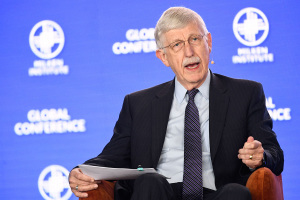Fewer Americans say Christmas should be about Christ: Study

While the majority of Americans believe the Christmas season should be more about Jesus, that number is steadily decreasing, a new study has revealed.
The study from LifeWay Research found two-thirds of Americans (65 percent) say, "Christmas should be more about Jesus." The study of 1,004 Americans conducted in September found that Christians (81 percent) are more likely to agree with that statement compared to other religions (35 percent) and nonreligious (28 percent).
However, those looking for more Christ in Christmas are significantly fewer than four years ago. A 2014 LifeWay Research study found 79 percent of Americans at that time said Christmas should be more about Jesus.
While the biggest drop occurred among members of other religions and the nonreligious, fewer Christians believe Christmas should be more about Jesus as well, the survey found. In 2014, 92 percent of Christians agreed, marking an 11 percent drop in 2018.
Scott McConnell, executive director of LifeWay Research, said the research shows there is “less cultural expectation for celebrations of the Christmas holiday to include the religious aspect.”
When asked if it’s offensive when someone says "Happy Holidays" instead of "Merry Christmas,” around a third of Americans (32 percent) agreed, compared to 40 percent of Christians. A similar number (33 percent) say the same about using “X-mas” instead of “Christmas.”
Interestingly, Americans age 50 and older are almost twice as likely to say they find "Happy Holidays" offensive than those age 50 and younger (42 percent to 22 percent). Overall, frequent religious service attendees are more likely to be offended by "Happy Holidays" (47 percent) than those who do not attend church.
"It's likely that Christians and older Americans are nostalgic for previous years or reluctant to acknowledge that not everyone celebrates Christmas this time of year," said McConnell.
"Many have the idea that most Americans are the same or that we share one culture of baseball, apple pie and Christmas, but that's not the case," he continued. "And when we encounter someone who believes differently from us, that can be jarring and even seem offensive for some."
"Christians may be better served finding a way to wish their non-Christian friends and family ... all the blessings possible during the season in which believers celebrate God blessing Earth with His Son," he said.
The Lifeway Research study corroborates a December 2017 report from the Pew Research Center which found that of the 90 percent of Americans who celebrated Christmas that year, 55 percent viewed it as a religious holiday, down from 59 percent who responded to an identical poll in 2014.
Fewer than half of respondents (46 percent) said they saw Christmas as “more of a religious holiday” than a “cultural holiday,” down from 51 percent four years ago.
The Pew survey also found that just 57 percent of Americans believe the main elements of the biblical account of the birth of Christ, down from 65 percent in 2014. The four elements of the Christmas story as told in the Bible are: that Jesus was born of a virgin mother; that three Magi came to visit, bearing gifts; that an angel announced the baby’s birth; and that the infant was cradled in a manger.
Based on their findings, Pew concluded that “some of the ways Americans think about and commemorate Christmas appear to be moving in a more secular direction.”
In a recent op-ed, conservative Jewish radio personality Dennis Prager warned that if “current trends continue,” saying “Merry Christmas” might be a “thing of the past.”
“If so it’s a shame, a further coarsening of the culture — and worse,” he said. “It is yet another an example of the removal of religion, specifically Christianity, from a country that has long been the most religious major industrialized democracy in the world.”
The elimination of the word “Christmas” should worry Christians, he said, because it represents the Left’s attempts to create a “thoroughly secular society.”
“Most people do not realize that the Left believes in secularism as fervently as religious Christians and Jews believe in the Bible,” he said. “That’s why ‘Merry Christmas’ bothers secular activists. It’s a blatant reminder of how religious America is — and always has been. That’s why I predict activists on the left will sooner or later seek to remove Christmas as a national holiday.”



























